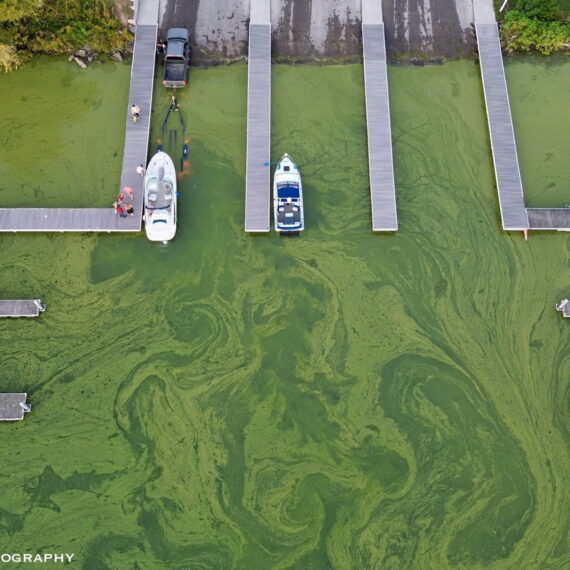If you’re lucky enough to live on Cayuga Lake, chances are you’re interested in keeping the lake water clean and healthy. A group of residents have organized to begin collecting samples along the west shore of Cayuga Lake between Ithaca and Trumansburg. “We want to make sure the lake is healthy for swimming and does not pose any hidden environmental risks to human or wildlife,” said Andy Yale, a member of the West Shore Neighborhood Association (WSNA).
The primary concern is pathogenic bacteria levels, as lake shore homes are connected to septic systems for waste treatment. If improperly designed or installed, septic systems can leak untreated waste, which could raise levels of E.coli bacteria along the lake shore. Rather than speculate and worry about possible problems, the WSNA organized a group of residents to volunteer and collect samples with CSI to determine if bacteria counts are at unsafe levels.
Any surface water body (streams, lakes, ponds, etc.) is practically guaranteed to contain some amount of bacteria from the environment, and the amount of bacteria is worth paying attention to. The EPA guidelines for contact recreation (swimming, fishing, boating, etc.) is 235 colonies/100 mL of E.coli bacteria. The WSNA held their first sampling event on June 25th, collecting samples from 15 lake shore locations. Samples were tested for total coliform and E.coli bacteria.
Results from the initial monitoring event are promising – only one location showed E.coli levels above the EPA swimming limit with 260 colonies/100 mL. The 14 other locations contained 60 colonies/100 mL or less of E.coli bacteria. All of the results and locations can be seen in CSI’s interactive database: https://communityscience.org/database/monitoringsets/39
Bacteria levels, like any other testing parameter, are subject to change with the weather. To gain a better idea of bacteria levels under varying weather conditions and over time, the WSNA volunteers will sample three more times during 2014 and all results will be published on the CSI website. If a pattern emerges that indicates septic leakage or other problems, CSI will seek additional funding to continue to monitor the lake shore.
Lake shore residents are not the only ones who might want to know more about the lake’s water quality. “Many people swim in the lake and occasionally slurp a bit of water,” said Yale. This sampling project, along with the 7 other CSI-Volunteer partnerships in the Cayuga Lake Watershed, will help our community gain a better understanding of Cayuga Lake’s water quality, the risks it may pose, and how it changes over time.



